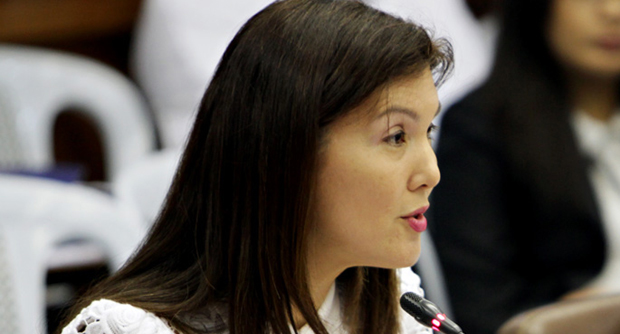MANILA, Philippines–A bill has been filed in the Senate that would give working mothers more time to take care of their newborns—longer than the current 60-day maternity leave with full pay with an option for a 30-day “extension”.
Sen. Pia Cayetano filed last week Senate Bill No. 2710, or the Expanded Maternity Leave Law of 2015, to expand the maternity leave of working mothers—married or unmarried—from 60 days to 90 days.
The aim is to provide working mothers “sufficient time to take care of their newborn babies and regain their full health,” Cayetano said in the bill’s explanatory note.
The senator noted that the longer leave would allow working mothers to complete the exclusive breast-feeding of their babies for six months.
Affects health
“According to a study cited by Time magazine, mothers who immediately resume work after giving birth experience disparaging health and increased personal stress. This, in turn, affects the total well-being of the family, including the health and cognitive development of the children,” Cayetano said.
In the proposed law, a working mother in the government who has rendered an aggregate service of at least six months in the last 12 months shall be granted maternity leave of 90 days with full pay based on her average weekly or regular wages, whether the delivery was normal or Caesarean.
She may opt to seek an additional maternity leave of 30 days without pay provided her employer would be notified in writing before the 75th day of maternity leave.
Cash equivalent
For a working mother in the private sector who has paid “at least three monthly maternity contributions in the 12-month period preceding the semester of her childbirth, abortion or miscarriage” and who is currently employed “shall be paid a daily maternity benefit equivalent to 100 percent of her present basic salary, allowances and other benefits or the cash equivalent of such benefits for 90 days.”
This is subject to certain conditions, among them, prior notification to her employer of her pregnancy and the probable date of her childbirth, which notice would be sent to the Social Security System (SSS).
The maternity benefits shall be paid only for the first four deliveries or miscarriages. The SSS shall immediately reimburse the employer 100 percent of the amount of maternity benefits advanced to the employee by the employer upon receipt of satisfactory proof of payment.
